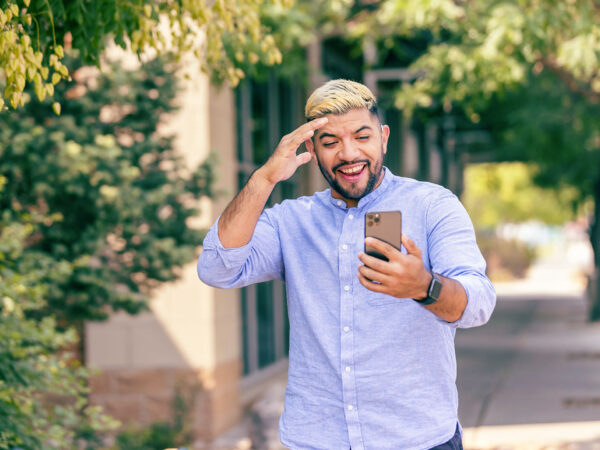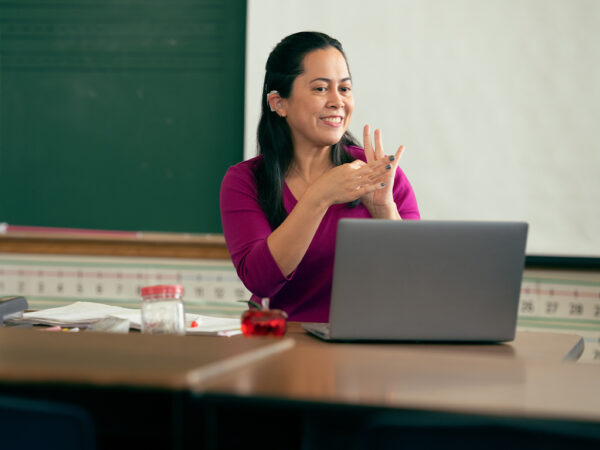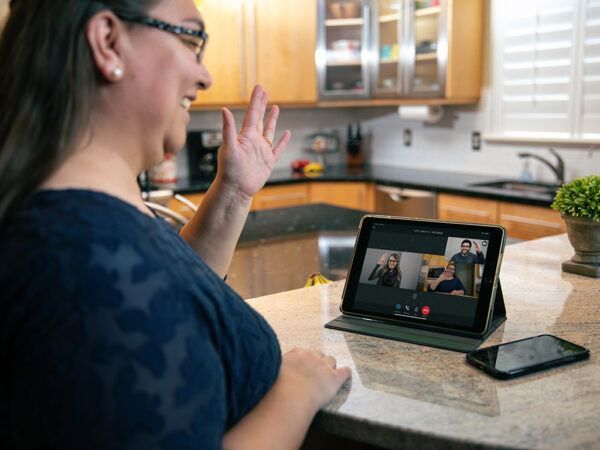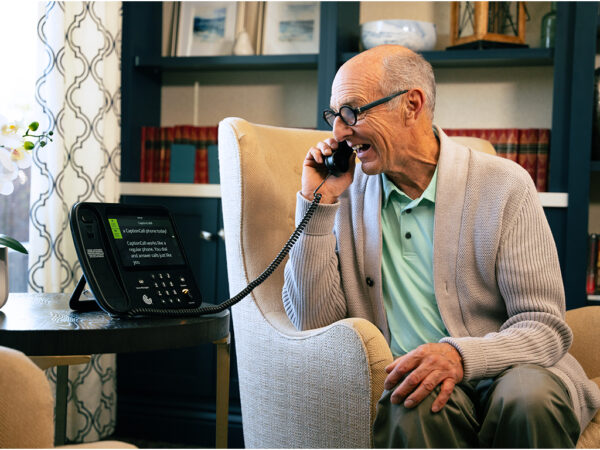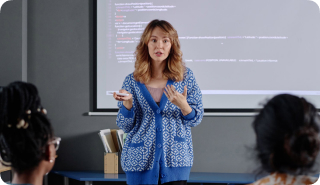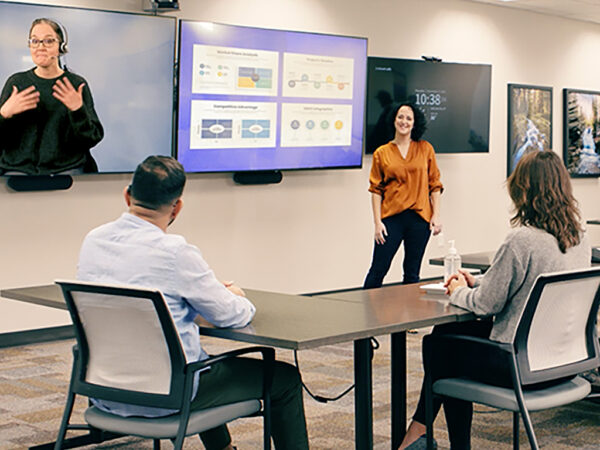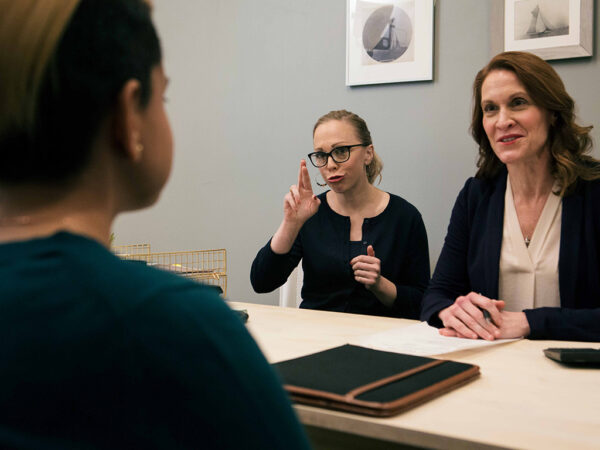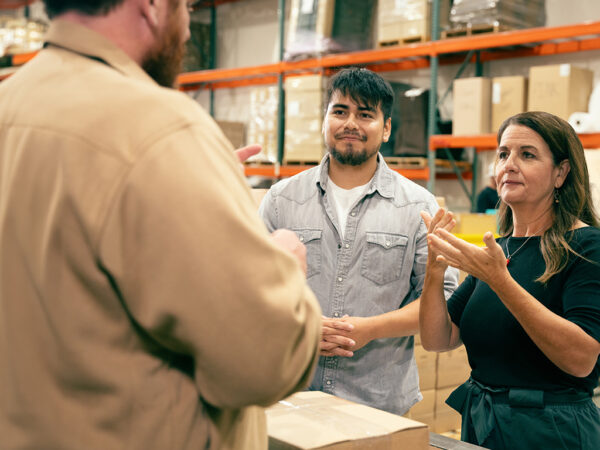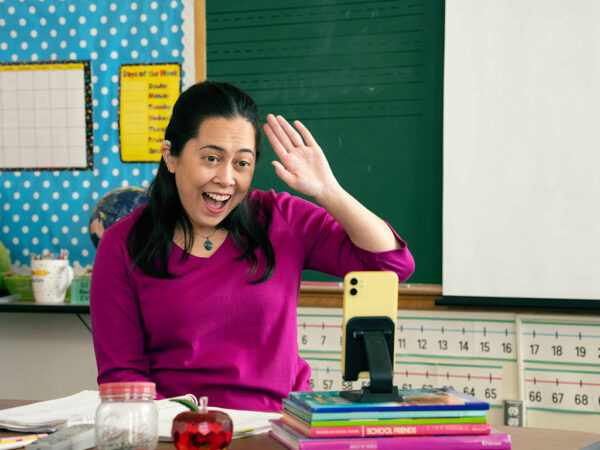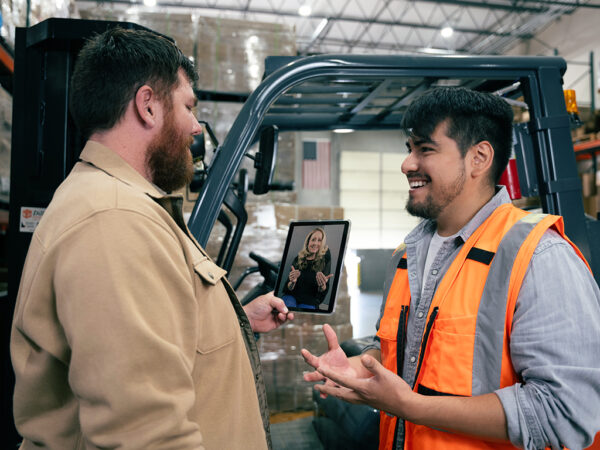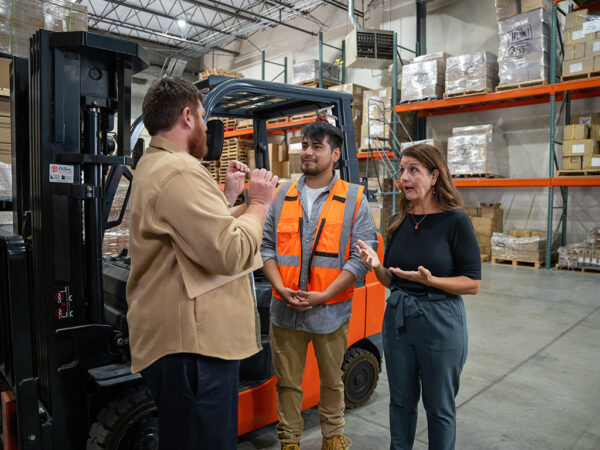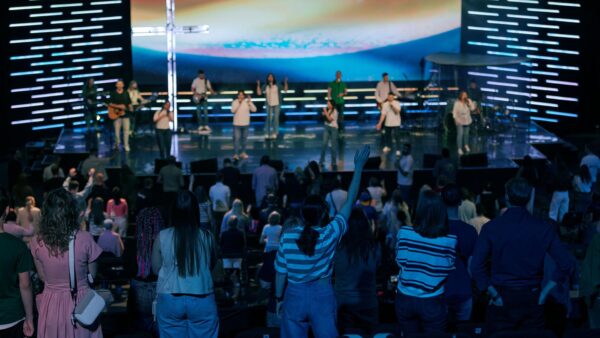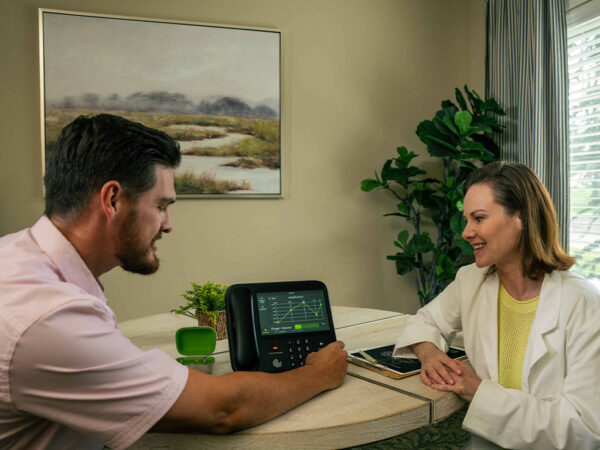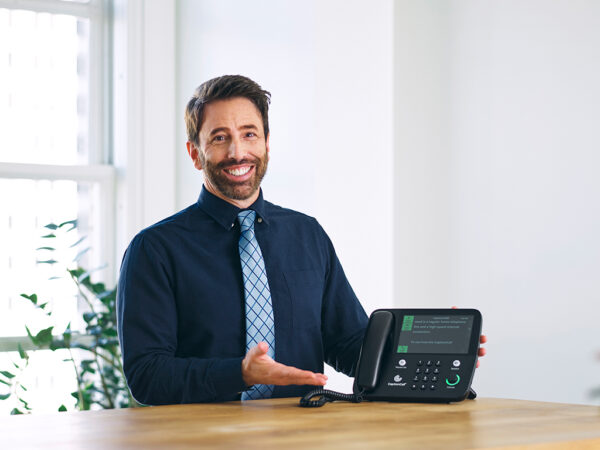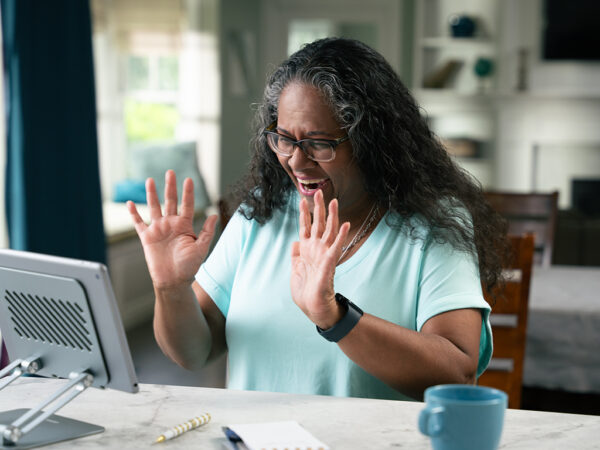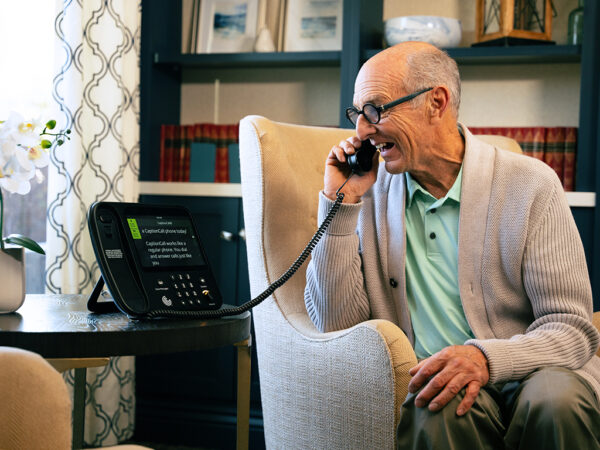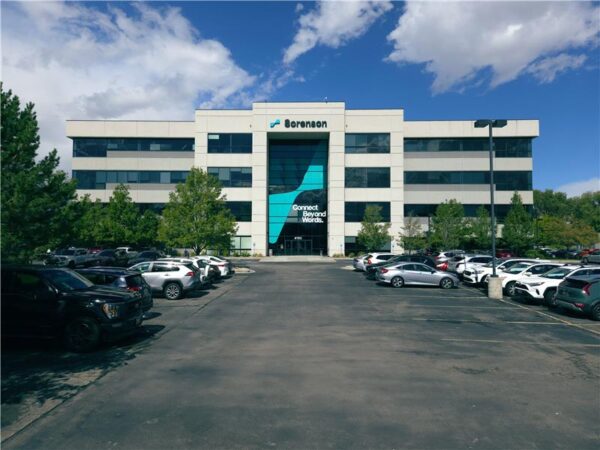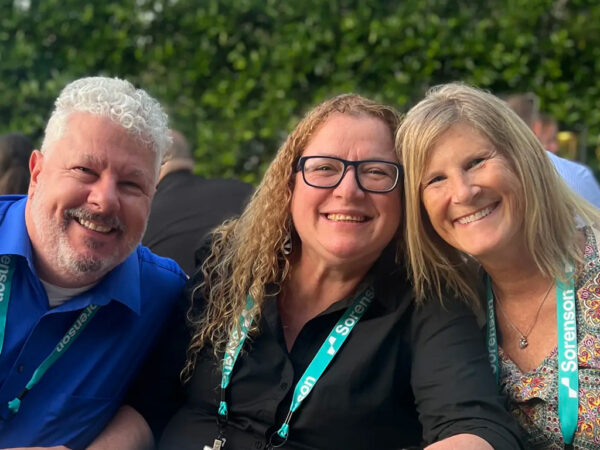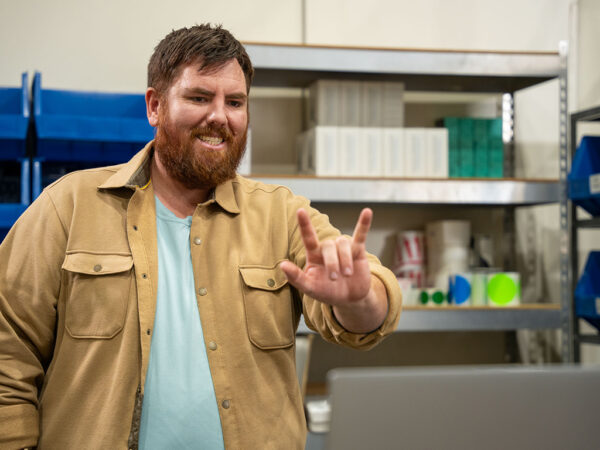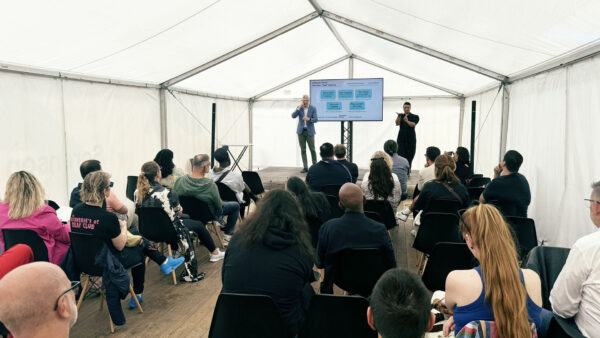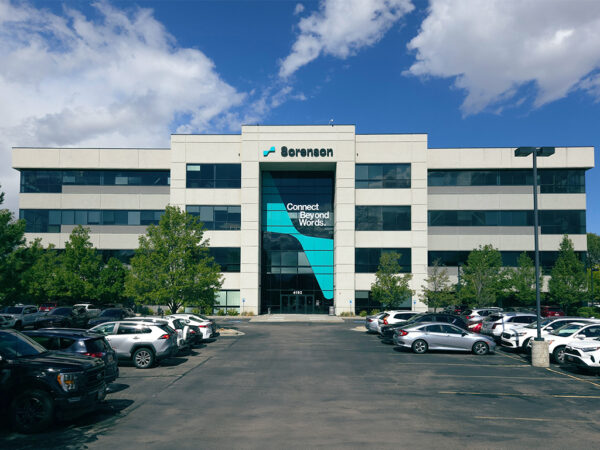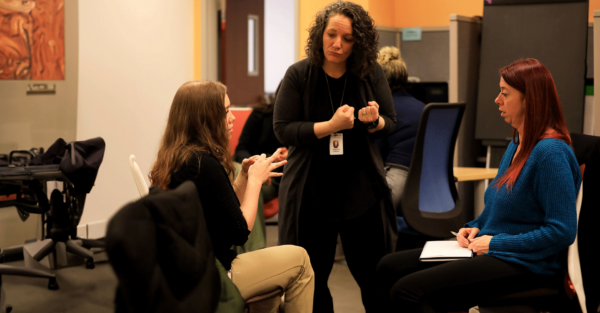Honoring Black Deaf History While Looking Forward

Gallaudet University launched The Necessity of Now, in October, 2023. Necessity of Now is a campaign supporting future economic equity by funding student scholarships and programs/research at the university’s Center for Black Deaf Studies (CBDS) as well as promoting healing and inclusion by funding an outdoor equitable learning space called the Louise B. Miller Pathways and Gardens: A Legacy to Black Deaf Children.
We had the privilege of meeting with Evon Black, Associate Director of CBDS, to talk with her about Louise B. Miller, the outdoor space in her honor, and the goals of the Necessity for Now campaign.
Transcript:
Melissa: Hello, my name is Melissa. (Shows name sign) I’m the Ambassador Relations Manager under the Relationship Department. I’m excited to do this interview today. Mind introducing yourself?
Evon: My name is Evon Black. I am the Associate Director of the Center for Black Deaf Studies at Gallaudet.
Louise B. Miller’s fight for her son’s education
Melissa: Nice to meet you. We’re excited to interview you today about some things at Gallaudet. We have some questions ready. The first question: Gallaudet University launched a campaign called Necessity of Now last October. Can you share with us what it’s about and the goals of the Necessity of Now campaign?
Evon: Necessity of Now is about framing the historical moments of a mother’s fight with injustice related to Black Deaf education at Gallaudet (Louise B. Miller). That fight led to more support (precedent) for the court case of Brown v Board of Education of 1954.
Melissa: If someone’s not familiar with Louise B. Miller, can you share why honoring her is such an important part of this campaign?
Evon: Happy to. It’s a long story but I’ll make it short. She was a mother of a Deaf son. They lived in Washington D.C. near Gallaudet, about 7 minutes away. She didn’t know how to communicate with her Deaf son.
When he got older, she contacted Gallaudet and asked if her son could go there. They said no because he was Black and said he had to go to Baltimore.
She was not happy about him going so far away. So she fought it.
First, she sent her son to Philadelphia School for the Deaf. Then she sued the Washington D.C. Board of Education. She lost the first case, then won the second. Her son came home and went to a segregated school at Gallaudet along with other local Black Deaf children who had been going to school in Maryland, Virginia, Pennsylvania and other states.
Louise B. Miller fought for the equal right of Black Deaf children in Washington D.C. to go to school where they lived just like white Deaf children. She was responsible for achieving equal access and equal treatment in Deaf education in Washington D.C.
Impact of Kendall 24
Melissa: When the Kendall 24 received their diplomas last July, what did that mean to you?
Evon: When they graduated and got their diplomas on July 22, 2023, it meant a lot to me. It meant that after a lifetime of fighting and struggle, they finally got the high school diplomas that had been denied to them. It really touched me. Their struggle, their suffering, and their fight made me feel proud. I would not have been educated if not for them. I would not be as successful as a Black Deaf person. That means a lot. Their resilience through their suffering means that I have to do more to give back for them. It really means a lot to me.
Louise B. Miller pathways and Garden
Melissa: Your plan for the Lousie B. Miller Pathways and Garden has three reflective rooms, a large outdoor classroom, and a small gathering space. Why did you choose this setup?
Evon: We have four themes:
- Awareness: know the story
- Freedom: never a straight line
- Memories: remember their struggle
- Healing
The three reflective rooms are purpose-designed spaces.
- The first is a solitary space to reflect and learn the story of one person’s fight: awareness and freedom.
- The second reflective space is bigger and can be shared by more than 2 or 3 people as they learn from the memories.
- The last space is for healing. It’s a large place where people can gather and discuss.
The main purpose of all three spaces is education and a place to have dialogue. The large space can act as a classroom with breakout spaces where people can discuss and reflect. It can also be a meetup place to have dialogue and conversations. A talking piece, in essence.
Melissa: Now that you’ve defined the plans for the space and the budget, when do you expect to start?
Evon: We’re hoping around 2025-26. It depends on the fundraising. The biggest need is for the money for construction. Thank you to Sorenson for donating $3 million to the Center for Black Deaf Studies. Thanks to Sorenson, we have enough to start on research. So now our focus and biggest area of need for fundraising is the construction of the physical memorial space. Then the two objectives will work together to provide a learning space of remembrance, dialogue, and acknowledgement of the history.
Supporting necessity of now
Melissa: How else can people support Necessity of Now?
Evon: There are a few factors.
- Contact the various people who support anthropological work and donate to them.
- Advertise with people who support equality and history like this and bring them in contact with Gallaudet Institutional Advancement to donate.
- And also share with others. If you are a teacher, share this information with your class, for example. And look into your own history. If you have personal history or know someone who has history with Kendall, connect them with us and bring historical artifacts.
- And donate to our campaign. Your donations will be greatly appreciated.
Melissa: Finally, is there anything else you want people to know about Gallaudet’s work in this area?
Evon: We have several sources of information to share. There is a YouTube video about the class of 1952, “Class of ‘52”, that explains the story. I think it’ll be nice information for you to know.
There’s also a YouTube video of the graduation ceremony for the Kendall 24. We have a website, www.gallaudet.edu/the-necessity-of-now/, which has information you can read.
The Center for Black Deaf Studies also has a website which has other information for you to read and share. Also we will have future webinars which you are welcome to join.
Melissa: Thank you so much for sharing your responses to these questions. Even though your responses were short, I feel like I learned a lot and the impact is there. I can feel it. Thank you for giving your time to meet with us for this interview and answering these questions about The Necessity of Now. I feel it is important to share with other people, especially those who will take the time to learn more and visit your informational websites.
Evon: Thanks. I look forward to it. I want to thank Sorenson again for the donation, and I want to thank the people who donate in the future and those who look into our work. Thank you.
Melissa: Thank you so much.
Evon: Necessity of Now.
Melissa: Necessity of Now.
Related articles
Deaf Community
News
News and updates about Sorenson VRS products and features and the Deaf community
Hearing Health Providers News
Hearing loss news and trends for hearing health professionals
Hard-of-Hearing
News
News and updates about living well with hearing loss and getting the most out of CaptionCall and CaptionCall Mobile

No Value (acf:field_67911dacbb423)

No Value (acf:field_67911d8bbb421)



